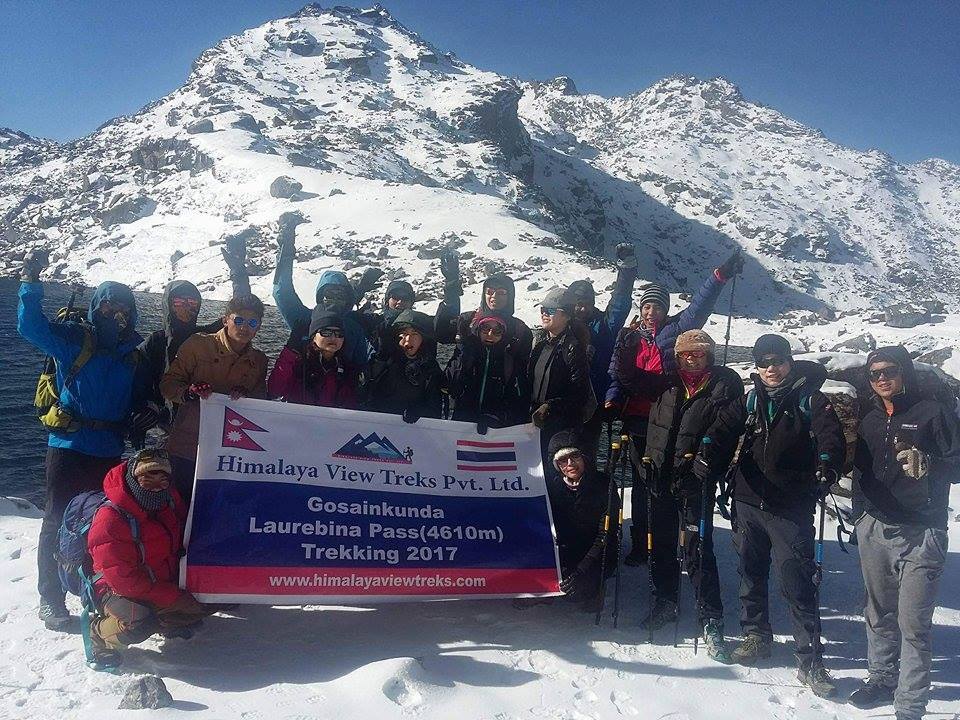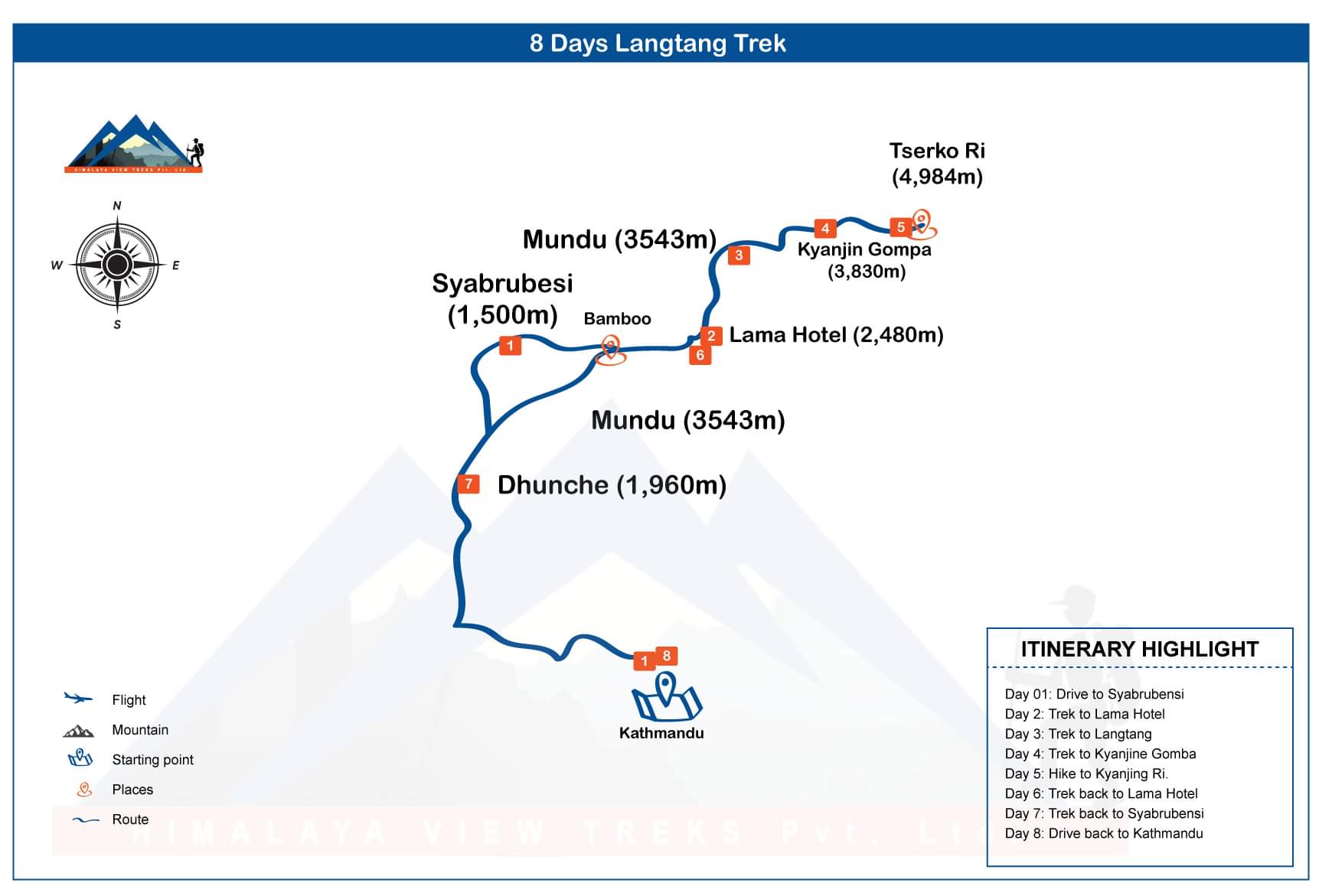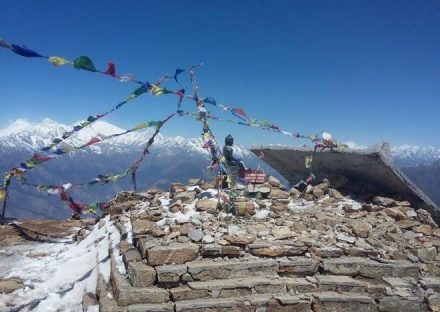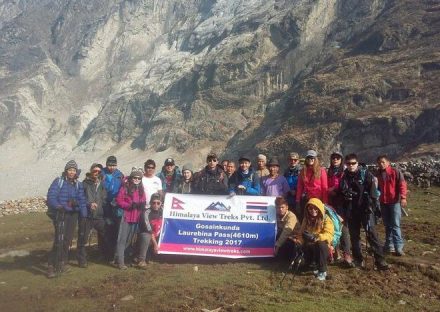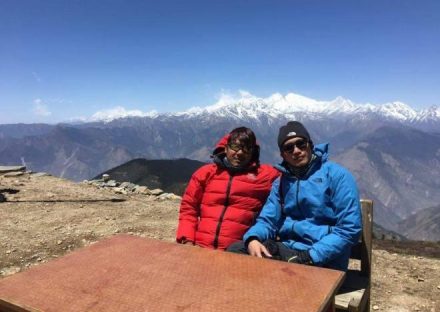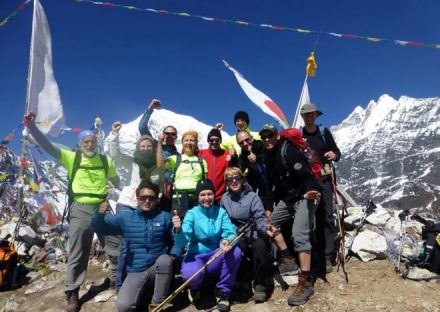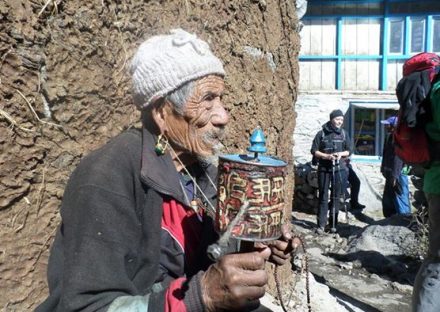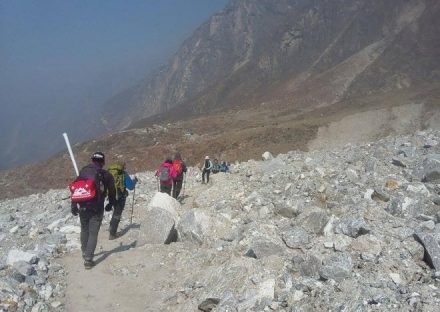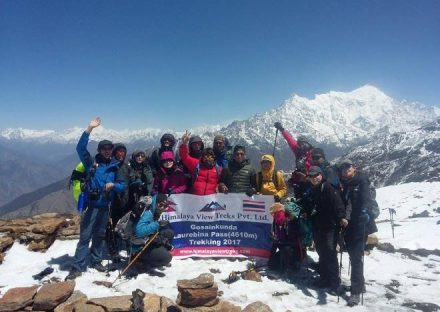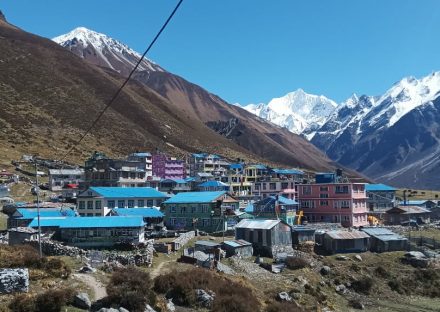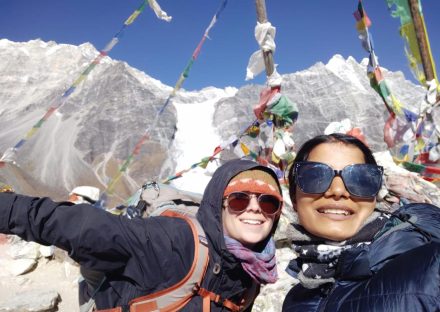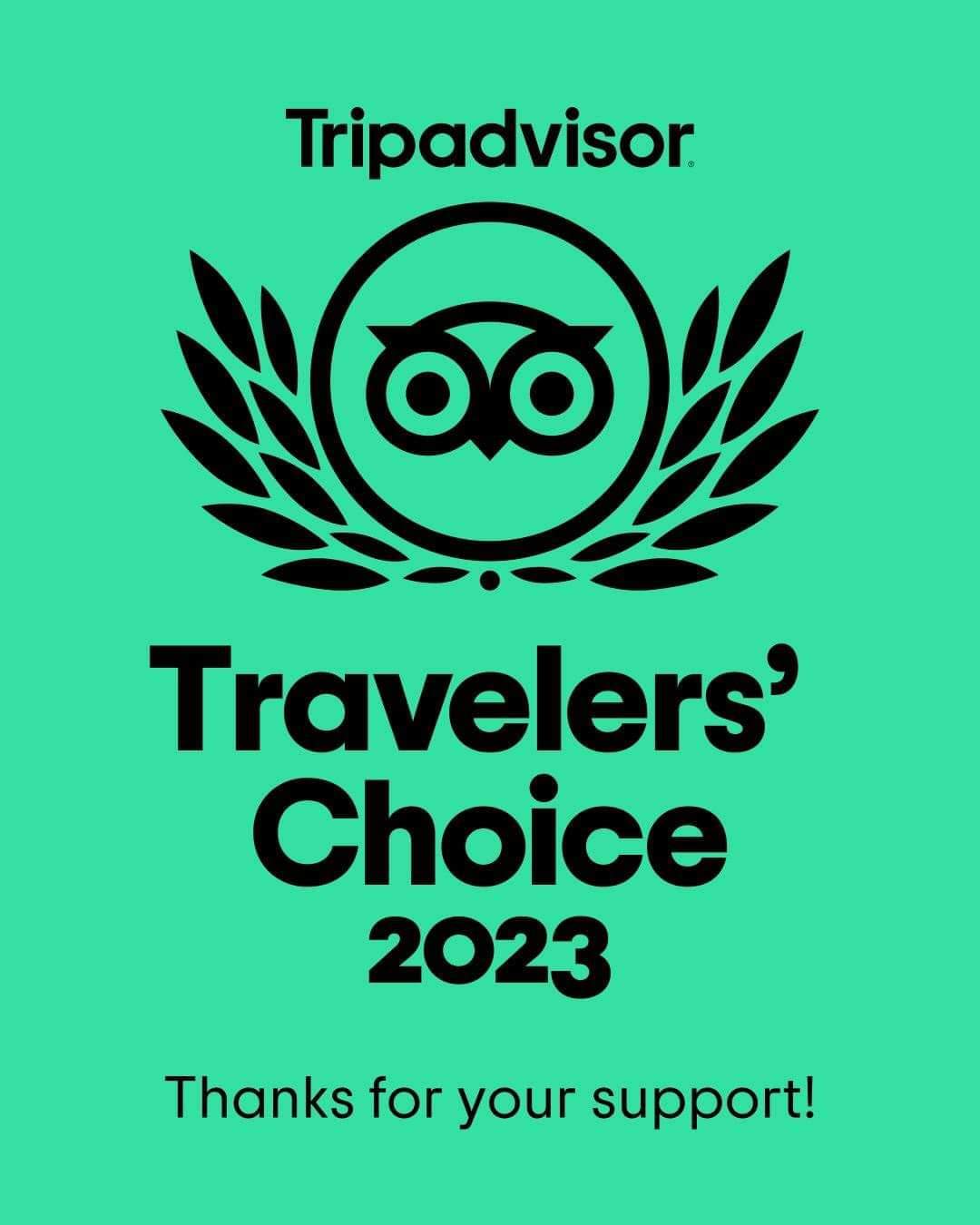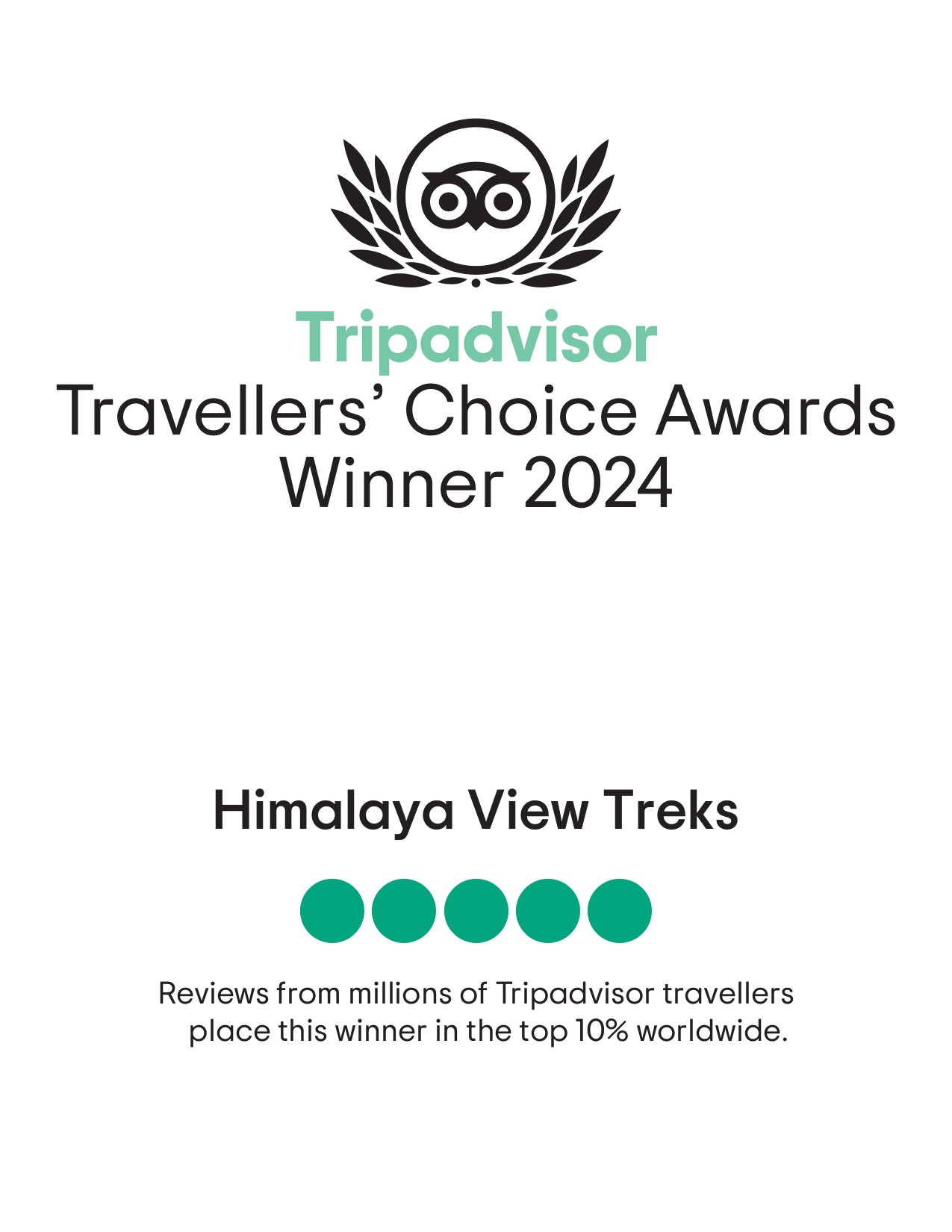- Details
- Short Itinerary
Detailed itinerary
Itinerary- Tour Includes/Excludes
- Useful Info
- Map
- Photos
- FAQ
Trip overview
Langtang Valley Trek – 8 Days
The Langtang Valley trek is one of the delightful shortest trips in Nepal. You can explore the Tamang culture and tradition, not only the natural scenery. If you are looking for The Langtang Valley Classic Trek then March / April / May and October / Nov to Dec are the Best seasons for Trekking. Langtang Valley Trek is a refreshing short trip in Nepal. The trail is nearest to Kathmandu Valley within the Langtang National Park. HVT presents an ideal itinerary for the Langtang Valley journey. Witness the Tibetan culture, mystic mountains, monasteries, and mythical landscape in one single Trip to Nepal. Moreover, it is a great trek to understand culture and nature.
However, the journey of 8 Days Valley of Langtang trek with a Local Guide is probably the most famous short trekking route after Poon Hill. Therefore, lots of people trek on this trail. However, after the 2015 earthquake, the area lost its visitors. The village of Langtang has been swept away completely. Langtang Lirung glacier landslide didn’t help either. Nowadays, life in Langtang is back to normal. Moreover, teahouses/Lodges are in full business. It is better than before.
The Langtang Valley Trek 8 Days with Local Guide – A great combo of nature & culture, via classical way an incredible view from Tsergo Ri & Kyanjing Ri.
Trekkers start the trek from Syaprubesi. Additionally, it is a small town in the Rasuwa district of Nepal. A local bus or private jeep takes trekkers to the town. The trail is okay from Syaprubesi to the Lama Hotel. Glacial Rivers, waterfalls, and green lush forests are the highlights of this day. Don’t miss climbing Tsergo Ri 5033 m. During the Langtang valley Trek. views from Tsergo Ri are better than Kyanjing Ri.
Moreover, The trail from Lama Hotel to Langtang Village is diverse. The bamboo forests of Ghoda Tabela are home to red pandas too. Therefore, there is an equal chance of spotting this rare animal too. Mani walls and small pagodas on the trail make the trip mythical. Furthermore, Kyanjin Gompa is the last village on the trail. The old monastery visit and Kyanjin Ri hiking are the highlights of the section. Relish the amazing scenery of mountains and landscape from the top of Kyanjin Ri ( 4773 m. ) or Tsergo Ri ( 5033 M. )The mountains seen from the top are Langtang Lirung, Sishapangma, Dorje Lakpa, Ganjala, etc. Trekkers retrace the same trail back to Syaprubesi. if you have more time and want to include Gosainkunda Lake or 14 days Lauribina Gosaikunda pass trek then you can continue via Thulo Bharkhu.
Book the 8-day Langtang Classic Trek with us. Trip costs are calculated as per Itinerary and group sizes. If you are on a short holiday, try this trip. Himalaya View Treks has a Local guide from the region. Therefore, it is the best opportunity to understand the locale from the locals. chat with an expert on WhatsApp +9779841146306
Short Itinerary
Langtang Valley Trek - 8 Days Itinerary
Day 01: Drive By Jeep to Syabrubensi from Kathmandu. Driving distance 170 km (7 hours) 1330 m.
Day 02: Trek to Lama Hotel from Shyabrubensi, a Walking distance of 5.5 km (6 hours) 2650 m.
Day 03: Trek to Langtang Village from Lama Hotel, a Walking distance of 7.7 km(6 hours) 3451 m.
Day 04: Trek to Kyanjine Gomba from Langtang Walking distance 6.8 km (3 hours) 3960 m / 12989
Day 05: Hike to Kyanjing Ri. Hiking distance 4.4 km (¾ hours) Overnight at the same Hotel in Kyanjing
Day 06: Trek back to Lama Hotel from Kyanjing, a Walking distance of 14.5 km (6 hours) 2650 m.
Day 07: Trek back to Syabrubensi from lama hotel Walking distance 5.5 km (6/7 hours) 1960 m.
Day 08: Drive back By Jeep to Kathmandu from Syabrubensi. Drive distance 170km (7 hours)
Detailed Itinerary
Day 01: Drive to Syabru Bensi
We will start our road trip to Syaprubeshi early in the morning. The guide will receive you at the hotel and transfer you to Machhapokhari in a taxi. You will take either a local bus or a local shared jeep. This is the best means of transportation. The road is nice as you can see lots of roadside towns and terraced farmlands. In some sections of the road expect dust, mud and bump. You will check in the hotel and rest for the day. Overnight at Hotel
Day 02: Trek to Lama hotel
Early in the morning after breakfast, we will start to walk towards Lama Hotel. The trail in some section is on the road track. We have to trek beside the river for most of the time. Langtang region’s highlight is the presence of unlimited rivers too. Lama Hotel is a small resting camp site where there are few lodges. It is surrounded by forests and is located in tranquil place. Overnight at Teahouse
Day 03: Trek to Langtang
We will have to walk through forest of bamboo on this day. Today, we might encounter red panda or some other wildlife life monkey on the trail. Ghoda tabela to Langtang Village section of the trail has many mani walls and memorials. Stroll around the village in the evening. It is newly settled village few meters far from original village which was swept away by the glacier landslide. Overnight at Teahouse
Day 04: Trek to Kyanjin Gomba
We will walk slowly to Kyanjin Gompa on this day. We can reach the Kyanjin Gompa from Langtang village is about 4 hours 3960m. Enjoy the landscape and the view along the way. Overnight at teahouse
Day 05: Hike to Kyanjin Ri
Early in the morning we hike the Kyanjin Ri for sunrise experience. The view is spectacular from the top of the Kyanjin Ri. The panoramic view of mountains, cascading hills and valleys along with the rivers make the top perfect place for perfect pictures. Nowadays, the top is famous for the best instagram pictures too. In the afternoon, explore the monasteries and Kyanjin Gompa village surroundings. Overnight at Teahouse
Day 06: Trek back to Lama Hotel
We will retrace back to Lama Hotel on this day. It is a long day of walking but you will not feel tired as it is already the fifth day of walking. Overnight at teahouse
Day 07: Trek back to Syabru Bensi
We will retrace back the same trail to Syaprubeshi
Day 08: Drive back to Kathmandu
We will take local bus or shared jeep back to Kathmandu. 6/7 hours drive.
Included
- Kathmandu to Syabrubesi and Syabrubesi to Kathmandu by Sharing Jeep
- All meals (Breakfast, lunch, and dinner) during your Langtang Valley Trek with 7 night Hotel Accommodation
- Government licensed holder, fluent English Speaking, Langtang Familiar Himalaya view Treks guide, 1 assistant guide if Group sizes is more than 10 trekkers) one guide lead up to 10 trekkers
- Strong local Porters for Carry trekker’s luggage. One porter every 2 trekkers, Porter carry maximum 20 Kg. 10 Kg per trekkers
- Cost Includes Guides and porters meals, accommodation, Salary, insurance, transportation, and needed equipment for the Trekking
- Water purification drop or tablets for safe drinking water
- Langtang national park permit fee and TIMS card permit
- Seasonal fresh fruits during the trek
- Local government, taxes, including official Service Charge
- Himalaya View treks T-shirt as a Souvenirs, and duffel bag if needed
Not Included
- Hotel accommodation and meals In Kathmandu
- Personal expense (shopping, snacks, boil bottle water, hot (tea, coffee) and cold drinks, hot shower, alcohol, Wi-Fi, telephone call, battery charge fee during the trek)
- Personal clothing and trekking gear
- Personal travel insurance including evacuation coverage (compulsory) up to 6000m)
- Additional costs if delays flights and outside the itinerary
- All the costs and expenses which are not mentioned in includes list
- Tips for guide and porters. in end of the treks
Useful Info
Langtang Vally Trek Key Highlights:
- Trek to the iconic Langtang Valley Trek with support from our experienced team of guides, crew, and porters who simply love what they do.
- Climb Tsergori (5033m) for grandstand views of Langtang Lirung, Dorje Lakpa Tibet Himalayan range, and surrounding peaks. The sights here are some of the best in the world.
- Experience the breathtaking scenery you’ll love it.
- Immerse yourself in colorful ancient Kathmandu with an optional s/seeing
- Experience the warmth and hospitality of the Tamang and Helmo people. Interact with them to learn of their lifestyles & traditions as they survive in harsh conditions for all of their lives.
Is Langtang Valley your ideal trek?
Trekking in the Langtang region is all about attitude. By its very nature adventure travel involves that you be prepared for the unexpected. In far-flung and developing countries do not expect the standards you are used to at home. Remote areas are sometimes unpredictable and itineraries may be altered. To enjoy your trip and get the most out of your adventure you must be flexible, positive, and eager to take on all the challenges that arise from your Langtang Trek odyssey. If you’re a greenhorn in the wilderness world then this trek would be ideal for you.
To truly enjoy this trip, you should be pretty habituated to walking 4-6 hours each day for several days on the go while some days will be relatively longer. We encourage you to walk at a pace that suits you without any rush whatsoever. This is a key aspect of enjoying such trips in the planet’s most popular region. You ought to be physically fit and an active walker to get the best of this classic mountainous journey to the south side of the mighty Langtang.
General information important to this trip:
Difficulty levels
TREKKING AT HIGH ALTITUDES (over 3500m)
This trip includes strenuous trekking at altitudes of over 3500m. For us, altitude is a very serious issue, a result that has kept our records clean making us one of the best adventure operators in Nepal for over 30 years of operating treks in the region. Our trekking guests must be in excellent health and have high fitness levels to attempt this trip, as well as be committed to training to ensure you are suitably physically prepared for the tough challenges that go above 4500m.
Altitude sickness is a risk for anyone, including on the Annapurna, Everest, and Langtang Valley Trek Please make sure you familiarise yourself with signs and symptoms before you depart and monitor your health during your trek, without letting it worry you.
We advise all our guests to undergo a thorough medical with their physician before they embark on this trip.
Participating in a group trip
When you travel with a group you will find much camaraderie and all the fun and also there’s bound to be some of the frustrations of traveling in a group. Your group mates will probably come from all corners of the world and you will come across a range of age groups too. We ask you to be understanding of the various needs and preferences of your group - patience with your fellow travelers is sometimes required for the benefit of everyone's travel experience. Remember too that you have responsibilities to the group. If you are requested to be at a place at a certain time, ensure you’re on time without keeping the rest of the group waiting. Experience has taught us often that the very best trips we operate are those where the chemistry within the group works well - this requires a ‘give a little take a little’ attitude effort on your part. For privacy reasons, we are unable to provide you with contact details and any personal information about your fellow travelers booked on your trip before departure.
TRAVELERS who prefer going SOLO:
Our group trips are generally planned for shared accommodation and don't involve single supplements. Single travelers share with people of the same gender in accommodations ranging from twin to multi-share. Some of our itineraries have accommodation booked on a mixed-gender share basis [for couples or trekkers known to each other before the trip]. On a selection of our trips, you have the option to pay a single supplement to ensure that you have your accommodation (where available). Please note that this only applies to accommodation during the trek - pre-trip and post-trip accommodation will be booked on a single-room basis at your hotel in Kathmandu. We also have arrangements for guests who wish to trek completely solo out of the group.
Travel Insurance
when booking with Himalaya View Treks, it’s a condition upon joining any of our trips that all clients must be insured for comprehensive expenses that might incur due to medical issues or accidents (this includes air ambulance, helicopter rescue, and treatment costs). Please note that we don't arrange or sell insurance because such a system is not allowed in our country.
Our Cost versus the Experience
At Himalaya View Treks, we always go the mile to ensure our trekking guests get the best experiences of the trip with maximum comfort and safety on a ratio that goes beyond the cost that we charge for the trip. We provide a ‘no frills’ price with breakdowns to make sure our clients are getting the best for a cost that goes beyond all expectations
Tipping [an expectation on such risky arduous trips]
Tipping is very much part of the culture in Nepal and although entirely at your discretion, it is usually expected. Often people would like to tip in recognition of good service but are unsure how much would be appropriate in a foreign country - for this reason, we have listed guideline amounts below (these are intended as a guideline only and you may see fit to give more or less depending on the service that you have received).
For the tipping of your trek staff and your tour leader, we suggest passing an envelope for each staff member around the group so that everyone can put in what they feel comfortable with anonymously.
The following are guideline amounts received by each staff member from the group as a whole...
- Tour Leader: Rs30,000 - 35,000 (usually tipped on the last night in Kathmandu)
- Your trekking crew (tips are usually given on the last evening of the trek in Syabrubensi):
- Head Trekking Guide and Assistant Guides: Rs20,000 - 25,000 for each guide
- Trek Porters/yak men: Rs10, 000 for each porter or yak man
Acute Mountain Sickness [AMS]
When we ascend above 2500 meters our bodies have to acclimatize to the decreasing amount of oxygen available. So, to allow our bodies to adjust we have designed our treks in ways that help you ascend slowly, allowing acclimatization to occur when you go above the tree lines where the air is thinner. However, during the acclimatization process, you may experience some of the following symptoms.
- Headache
- Tiredness
- Disturbed sleep patterns
- Loss of appetite/nausea
- Shortness of breath
- Cough
- Palpitation
- Swelling of the hands and face
But if you feel such symptoms don’t let it worry because it’s normal. Individuals acclimatize at different rates. Some may experience symptoms, some may not. Your best strategy is to take your time and drink plenty of water. These symptoms may not indicate the onset of A.M.S.; if you experience them, it does not necessarily mean that you should not continue. All our group leaders have extensive first-aid training and we urge you to communicate with the group leader at all times should you believe you have any symptoms so that we can effectively monitor your symptoms as you go higher. The only cure for Acute Mountain Sickness is to descend. Please note, that your group leader has ultimate responsibility and may ask you to descend if symptoms persist. As a last resort, if matters grow from bad to worse, we always have a helicopter on standby for immediate evacuation.
A Typical Day on the Langtang Valley Trek
A typical day on the trail begins with a wake-up call at around 6 AM by your guide. Freshen up and get ready. Pack your belongings and head to the dining area for breakfast by 7 AM. Check your luggage for the final time and fill your water bottle before you hit the trail by 8 AM, along with your guide.
To avoid walking in the heat and enjoy clear mountain views, you make an early start. En route, there will be short breaks to enjoy the views and take photographs. You haul up for lunch at a local teahouse around noon or mid-day. After a quick rest of about an hour or 40 minutes, you get back on the trail and continue till you reach your overnight stop.
Upon reaching the stop for the night, you head to your teahouse, check-in, and have some rest. Tea with some light refreshments (cookies or biscuits) will be served at 5 p.m. As the rooms are not insulated, you can warm yourself with the heater or stove in the communal area.
Exchange stories or play cards with other trekkers and sherpas till dinner is served (around 7 PM). After dinner, your guide will brief you about the next day’s trek – the route you will take, the difficulties, where you will stop for lunch, etc. Afterward, retire for the night and have a well-deserved rest.
On average, you may have to walk 6 to 7 hours daily. The trek to the Lama Hotel is the shortest and the easiest, while the hike to Kyanjing from Langtang on the 4th day could be you’re toughest because of altitude. On Day 5, a hike to Tserkuri (4980M.) for the sunrise view is scheduled. So you will have to wake up before 5 AM to reach Tserkuri before sunrise. Your guide will share the details regarding the hike during the after-dinner briefing on Day 4.
Equipment for Langtang Trek
This section is intended to provide information on clothing and equipment requirements for Nepal Trek. It is not intended to be a final and authoritative checklist. For those who would like a more detailed discussion of these issues, we ask you to contact us at singbir@yahoo.com or via WhatsApp at +9779841146306
The following is a list of clothing and accessories that we recommend that you take with you. This is not intended to be a comprehensive clothing and equipment list, rather it is intended to act as a reminder of those items that we feel are essential for your comfort and convenience. However, we recommend that you may have your personal preferences for clothing which may be equally as suitable.
Footwear: Equipment List for Langtang Trek
- Walking boots with suitable ankle support that have been worn before the trek, and which are waterproof
- Trainer or casual shoes, for trekking and/or traveling,
- Warm socks for colder areas,
- Gaiters, in case of rain or snow
Legwear
1. Loose, casual trousers for trekking,
2. Thermal leggings for colder areas,
3. Long skirt for women as an alternative to trousers,
4. Waterproof trousers
Body,
1. Selection of T-shirts, and long-sleeved shirts, preferably not cotton
2. Thermal shirt for colder areas,
3. Warm shirt, possibly fleece, for colder areas,
4. Fleece jacket or warm wool jumper
5. Windproof, waterproof outer shell garment for higher altitudes,
6. Down jacket (optional for cold nights & mornings; can be hired in Kathmandu cheaply)
Head / Hands,
1. Wool or fleece hat, or balaclava
2. Hat or cap for sun protection while trekking
3. Sunglasses or goggles,
4. Warm gloves
Other Items
- Strong rucksack or large hold all to be carried by porters
2. Day sack to be carried personally
3. Plastic bags or stuff sacks to store/separate trekking gear inside your main bag
4. One-liter water bottle
5. Personal first aid kit to include essential items,
6. Sleeping bag, 4 season
7. Torch, ideally head torch,
8. Camera and film! – For those not-to-be-forgotten shots of the Himalayas
9. Toilet items and towels,
10. Large handkerchief/bandana for neck
Optional Items,
1. Binoculars,
2. Books (see Recommended Reading)
3. Altimeter,
4. Compass,
5. Playing cards/backgammon/chess set
And Finally
The most important things that you must take with you are a sense of humor, an open mind, and an understanding that a trip to Nepal is an adventure to a land that is very different from your own.
Langtang Trek Entrance Permit Fee
Langtang National Park entrance fee, is NPR 3000 including 13% VAT per person, if you are from SAARC country then RS 1500 including 13% VAT
TIMS – US$ 20 per person if you are from a SAARC country then US$ 10
Travel Insurance
It is mandatory to take travel insurance for any kind of trekking in Nepal. Make sure to get an insurance plan that covers helicopter rescue, medical aid, and emergencies.
Weather & Climatic Conditions
Nepal’s mountain region has unpredictable weather and climatic conditions. Day temperature is normal but night hours are pretty freezing. Weather can change drastically in just an hour. Expect unexpected changes in climate and weather. However, the team will analyze the situation and only decide whether to push or not.
Trekking Preparation
The best way to prepare for climbing is by doing cardiovascular workouts. These kinds of cardio exercises help to increase lung capacity. To climb the mountain, you need strong and healthy lungs.
Do some strength-building training like planks, push-ups, and squats? Cycling is also the best option to prepare your body for climbing. Always start these activities 4-5 months before traveling to Nepal for climbing.
Are You Already in Nepal?
If you are already in Kathmandu or Pokhara and seeking to Hire a guide/porter or tour/trekking packages, you can directly contact an expert via WhatsApp at +9779841146306. Or visit our office:- Himalaya View Treks Kaldhara Marg, Kathmandu 44600, in front of the Kathmandu Sport Climbing Center 1st-floor building.
Moreover, you can book this trip on any date for 2025/2026, we have plenty of departure dates available for 2025/2026.
FAQs
-
Can I do solo trek in Langtang?
Yes, you can do solo trekking. However, trail is very confusing. There is frequent chance of landslide and distance between rest camps is far. Therefore, it is wise to do the trek with a trekking guide.
-
Are there good accommodation/food facilities in the trail?
Yes, there are many good lodges and eateries on the trail. People of Langtang restored the ruined trail due to earthquake back to normal again. You can stay in either teahouse or hotel. Food is from the menu. Normally, every lodges have similar menu ranging from Indian, Continental to local delicacies.
-
Can I do some volunteering works in the village while on trek?
Yes, you can do some volunteering works in the Langtang Village. It is very short trek from Langtang to Kyanjin Gompa. Therefore, you can do 3-4 hours of volunteer works like attending the local school or monastery in the village.
-
Is there risk of landslide and flood?
There is high risk of landslide on the trail. In some section of the trail, you will have to walk over the landslide. Be aware of the falling stones too.
-
Can I extend my Trek to Gosaikunda Lake?
You can trek to Gosaikunda as well. When returning from Kyanjin Gompa nearby Lama Hotel, you can find the trail to Thulo Syapru. From this village, there is a good trail to the holy Gosainkunda Lake.

